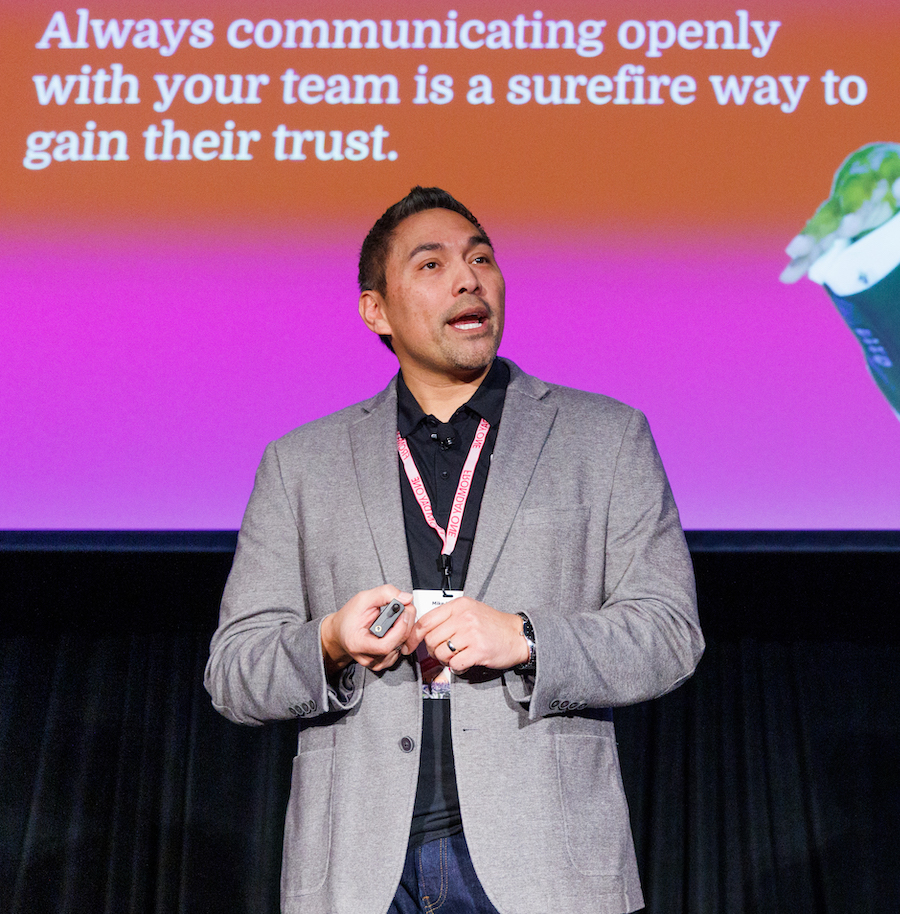Building Culture for the Changing World of Work


All of us contain multitudes: we enter any workplace as family members, caregivers, friends, and loved ones. We take our essences, our lived experiences, and our social norms into our careers. It is crucial for businesses to focus on and prioritize these connections and relationships. This business philosophy builds a healthy company culture.
Mike Kaupe, global director of sales engineering at HiBob, led the audience of From Day One’s live conference in Atlanta in a discussion about building a company culture. Just like cities, or even food scenes, company cultures impact our everyday interactions and experiences. “Culture is the accumulation of relationships. It must emanate from the top leadership of the organization and then permeate through all people leaders in the organization, so that everyone has that sense of connectedness, a sense of belonging.” Kaupe espouses an idea he learned from leadership expert Simon Sinek: that culture is one of the motives behind the way we feel and, in turn, the way we will treat others. If an employee really appreciates the company they work for, the clients will in turn also appreciate the company they are patronizing.
So how do we go about doing this? Kaupe points to the three T’s: Trust, Transparency, and Teamwork.
What does it take to build a culture of trust? You have to be able to take a look at the policies and opportunities offered. Does everyone abide by policies? Does everyone across the board feel welcome to equal opportunities? “Trust is hard, especially in our diverse world, across borders and global teams. In collaboration, how do you trust everyone's going to do what they say they're going to do? Well, we had to foster inclusivity. We found out that when we foster inclusivity, it fostered collaboration. This was actually a lot of fun.”

Kaupe shares that it is important to have employees view the intricacies and developments occurring at an organization. Everyone should be able to access pertinent information: “You have to be transparent. This is key. And I mean transparency in everything we do, including data and visibility as to the makeup of the organization. So, for example, everyone in our company has access to understand the makeup of HiBob. What that does is it holds everyone accountable.”
Job satisfaction and employee engagement are essential. Employees want to feel supported and to have the necessary tools to complete their duties. For some companies, that may entail a 35-hour work week, or work-from-home options. Kaupe explains that, by giving employees collective accolades, as opposed to individual commendations, leaders can strengthen team dynamics. “We need to praise groups, instead of just individual achievements,” he said. This practice can promote cohesion, camaraderie, and a culture of healthy feedback.
Company culture is the ultimate ROI. When people feel visible and appreciated in the workplace, they are able to influence interaction and engagement with clients and customers. Company culture must be a business value. Employees have to feel recognized, and companies need to do dedicated work in order to understand what their staff values. “Remember this,” Kaupe advised. “Building a strong, healthy, and good company culture can be difficult, but it's not impossible.”
Editor's note: From Day One thanks our partner, HiBob, for sponsoring this thought leadership spotlight.
Nzingha Hall is a journalist, public speaker, and DEI facilitator in Atlanta, Ga.
The From Day One Newsletter is a monthly roundup of articles, features, and editorials on innovative ways for companies to forge stronger relationships with their employees, customers, and communities.